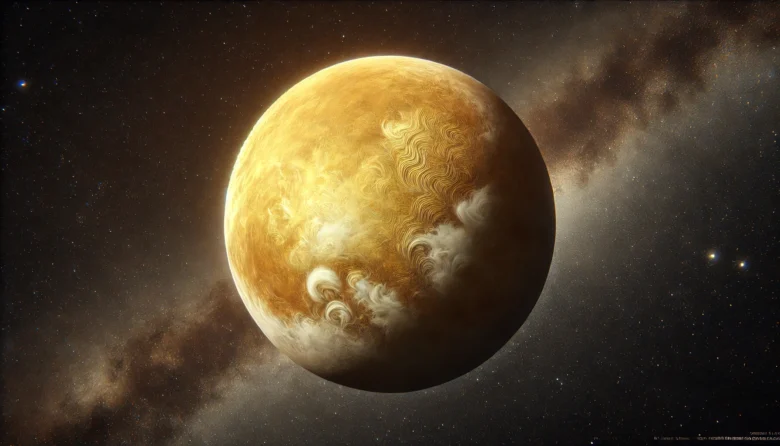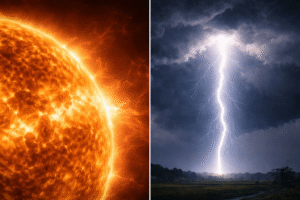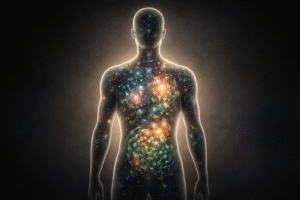Imagine a world where a single day lasts longer than an entire year. That world exists, and it’s right in our cosmic neighbourhood! Venus, often called Earth’s “sister planet” due to its similar size and composition, defies our earthly expectations with its bizarre timekeeping. This unusual phenomenon—a day on Venus being longer than its year—is one of the many reasons scientists are fascinated by this enigmatic planet. Let’s dive into this cosmic oddity and explore why Venus spins to such a different rhythm.
Why is Venus So Unique?
Venus, the second planet from the Sun, stands out as one of the most radiant objects visible in our night sky. Though it shares some similarities with Earth in size and composition, its rotation and orbit are strikingly different. Venus takes about 225 Earth days to complete one orbit around the Sun, which constitutes its year. However, its slow rotation means it takes 243 Earth days to complete one spin on its axis—a single Venusian day.
Even more intriguingly, Venus rotates in the opposite direction of most planets, including Earth. This retrograde rotation means the Sun rises in the west and sets in the east on Venus, further adding to its peculiarity. Scientists believe this odd rotation could be the result of a massive collision during its formation or the influence of tidal forces over billions of years.
The Physics Behind Venus’s Day and Year
The difference between Venus’s rotational period (day) and orbital period (year) stems from its interaction with gravitational forces and its dense atmosphere. Venus’s thick atmosphere creates a runaway greenhouse effect, making it the hottest planet in the solar system. This atmospheric density also generates immense pressure and winds, which might have influenced its rotational speed over time.
In addition, Venus’s proximity to the Sun exposes it to strong gravitational forces. These forces can create tidal friction, gradually slowing down the planet’s rotation. Unlike Earth, which has a relatively stable rotation thanks to its moon, Venus lacks a natural satellite to balance these forces.
Anecdote: The Magellan Mission
In the early 1990s, NASA’s Magellan spacecraft provided some of the most detailed maps of Venus, unveiling its mysterious surface. The mission also confirmed the planet’s slow rotation and retrograde motion. One fascinating finding was that Venus’s thick clouds rotate much faster than the planet itself, completing a full cycle in just four Earth days. This “super-rotation” of the atmosphere remains a mystery and highlights how different Venus is from other planets.
Why Does It Matter?
Understanding Venus’s rotation and orbit offers valuable insights into planetary formation and evolution. It also provides a stark contrast to Earth, allowing scientists to study how similar planets can develop vastly different characteristics. These studies could help us identify Earth-like exoplanets and assess their potential for habitability.
Moreover, Venus serves as a cautionary tale of climate change. Its extreme greenhouse effect—caused by an atmosphere composed mostly of carbon dioxide—illustrates the potential consequences of unchecked atmospheric warming.
Challenges and Unsolved Mysteries
While we know a great deal about Venus, many mysteries remain. For instance, what caused its retrograde rotation? How did its atmosphere achieve such extreme conditions? And what role does the super-rotation of its clouds play in its overall dynamics?
Studying Venus is also challenging due to its harsh environment. Surface temperatures exceed 475°C (900°F), and the atmospheric pressure is about 92 times that of Earth. These conditions make it difficult for spacecraft to survive on the surface for extended periods, limiting our ability to gather data.
Conclusion
Venus, with its day longer than its year and its scorching, inhospitable surface, challenges our understanding of planetary science. Its unique characteristics not only intrigue astronomers but also offer lessons about our own planet and its future. As space exploration advances, Venus remains a prime target for missions seeking to uncover the secrets of our solar system.
What if Venus’s story holds the key to understanding climate dynamics on Earth? Exploring Venus could not only expand our knowledge of the cosmos but also guide us in safeguarding our home planet.
Author’s Note
As I delved into the fascinating details of Venus, I was struck by its complexity and the sheer unpredictability of our universe. The thought of a single day outlasting a year challenges the way we perceive time and underscores how diverse planetary systems can be. Venus reminds us of the boundless wonders waiting to be explored.
G.C., Ecosociosphere contributor.
References for Further Reading
- NASA’s Venus Exploration Missions
- The Magellan Spacecraft and Its Discoveries
- Why Does Venus Rotate Backwards?
- VENUS: BEAUTIFUL YET AMAZING FACTS ABOUT PLANET VENUS – We Build & Host Dreams!. https://multiplexhost.com/beautiful-yet-amazing-facts-about-planet-venus/
- A close look at the solar system planets – AsterPix. https://asterpix.com/nature/solar-system-planets/
- The Inner Planets: Mercury, Venus, Mars, and Earth – vcdiversity.org. https://www.vcdiversity.org/the-inner-planets-mercury-venus-mars-and-earth/





Comments
Fantastic site A lot of helpful info here Im sending it to some buddies ans additionally sharing in delicious And naturally thanks on your sweat
I know this web page provides quality dependent content and other stuff, is there any other web
site which provides these stuff in quality?
My relatives every time say that I am killing my time here at net, but
I know I am getting knowledge every day by reading such good content.
If some one wishes to be updated with hottest technologies afterward he must be go
to see this web site and be up to date daily.
It is actually a great and helpful piece of info. I am happy that
you simply shared this useful information with us.
Please stay us up to date like this. Thanks for sharing.
I every time emailed this blog post page to all my friends,
since if like to read it then my contacts will too.
At this time I am ready to do my breakfast, after having my breakfast coming yet again to read further news.
I’m truly enjoying the design and layout of your website.
It’s a very easy on the eyes which makes it much more pleasant for me to come here and
visit more often. Did you hire out a designer to create your theme?
Excellent work!
What’s Happening i’m new to this, I stumbled upon this I have discovered It absolutely helpful and it has helped me out loads.
I’m hoping to give a contribution & help other users like
its aided me. Great job.
Why people still make use of to read news papers when in this technological globe everything is available on net?
Sweet blog! I found it while surfing around on Yahoo
News. Do you have any suggestions on how to get listed in Yahoo News?
I’ve been trying for a while but I never seem to get there!
Appreciate it